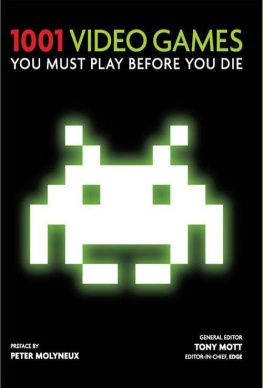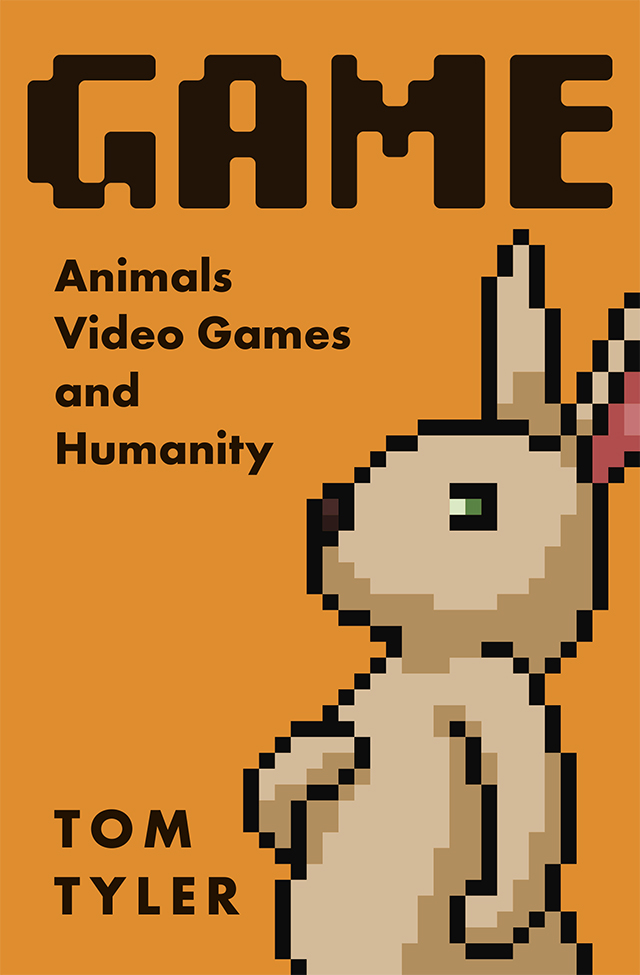
Game
Game
Animals, Video Games, and Humanity
Tom Tyler

University of Minnesota Press
Minneapolis
London
Cover design by Sandra Friesen Design
Cover image copyright non157/iStockphoto
The Publication History gives original and previous publication history for the writings compiled in this book.
Copyright 2022 by the Regents of the University of Minnesota
All rights reserved. No part of this publication may be reproduced, stored in a retrieval system, or transmitted in any form or by any means, electronic, mechanical, photocopying, recording, or otherwise, without the prior written permission of the publisher.
Published by the University of Minnesota Press
111 Third Avenue South, Suite 290
Minneapolis, MN 55401-2520
http://www.upress.umn.edu
ISBN 978-1-4529-6461-4 (ebook)
A Cataloging-in-Publication record for this book is available from the Library of Congress.
The University of Minnesota is an equal-opportunity educator and employer.
For Minnie, who loves a good game
Every game has its stake.
Huizinga, Homo Ludens
Contents
I would like to thank my parents, Monica and Richard Tyler, for their unwavering support and encouragement over many years. I thank my partner in life and crime, Jane Harris, who not only makes all this possible but whose unfailing enthusiasm brightens all our adventures together. And I thank my daughter, Minnie, who is teaching me about a whole new world of gaming.
Many people provided help and advice in the form of stimulating conversations, challenges, or feedback on particular sections of the book, including Espen Aarseth, Carol J. Adams, Steve Baker, Ian Bogost, Brett Buchanan, Malcolm Bull, Gordon M. Burghardt, Matthew Calarco, Diane Carr, Daniel W. Conway, Gary Gutting, Ian Hamilton, Aimi Hamraie, Linda Hutcheon, Sarah Irons, Ewan Kirkland, Randy Malamud, Susan McHugh, Jeff Minter, Simon OSullivan, Siobhan OSullivan, Christopher Paul, Anat Pick, Constantine Sandis, Dinesh Wadiwel, John Webster, Michelle Westerlaken, Cary Wolfe, and Szymon Wrbel. A great many others, too numerous to list individually, answered my questions on specialist topics. Seth Giddings and Karl Steel provided valuable feedback on the book as a whole. To all these, I am extremely grateful.
My thanks, too, to those who provided help with translations, including Megumi Aoi, Andr Krebber, Kurt Lampe, and Matthias Revers, as well as to my longtime veterinary consultant, Philip Farnham, and to Edwin Evans-Thirlwell and John Flattery, who shared their technical expertise.
I am grateful to the University of Leeds and to the Animals and Society Institute, both of which have provided very welcome opportunities for me to think and write.
I thank everyone at the University of Minnesota Press, especially Zenyse Miller and Doug Armato, for all their help in the preparation and publication of Game. Particular thanks go to Brett Kendall for his careful copyediting and to Sandra Friesen for the typesetting and design.
Finally, I thank especially my friend Robert McKay, whose sage advice at every stage and on all aspects of the project has been indispensable. This would have been a poorer and much less enjoyable game without you playing, too.
Game
Animals, activities, attitudes
Nintendos Duck Hunt, released in 1984 for the Famicom game console, provides players with the opportunity to test their skill at shooting fast-moving digital creatures. Using a moulded plastic pistol, players fire at a succession of ducks flushed from the grass by their trusty hunting hound. Depending on the game mode, one or two ducks will take flight at a time, and players have just three shots to hit them before they escape beyond the top of the screen (Figure 1). The dog will retrieve any downed ducks or (notoriously) snigger at players who miss. As rounds progress, the ducks fly faster and the game continues until the player fails to bag enough birds. A third game mode offers clay pigeons as targets instead, providing, in effect, a simulation of a simulation. An arcade version released the same year included two light guns, allowing a brace of players to shoot the ducks (and indeed the dog, accidentally or otherwise). Duck Hunt was not the first time that Nintendo had devised games on this theme. Several years earlier, the company had sold an electromechanical toy called Light Beam Gun Duck Hunt (1976), which allowed players, armed this time with a weighty replica shotgun, to shoot ducks projected onto a wall. With each of these iterations, Nintendo offered gamers a playful emulation, at one remove or more, of the pleasures to be had shooting animals.
Duck Hunt thus exemplifies two key meanings of the word game that derive from its Old English roots. In early medieval England, gamen or gomen was a broad term used to indicate amusement, merriment, joy, and the like, as well as jests and jokes. It could also mean a specific form of entertainment or pastime, and it is from this that we gain the most common understanding of game today: an activity played for entertainment, usually governed by certain rules or restrictions, most often involving some combination of skill, strength, or luck, and perhaps culminating in victory or defeat for one or more of those involved. Duck Hunt, then, is a game about game.
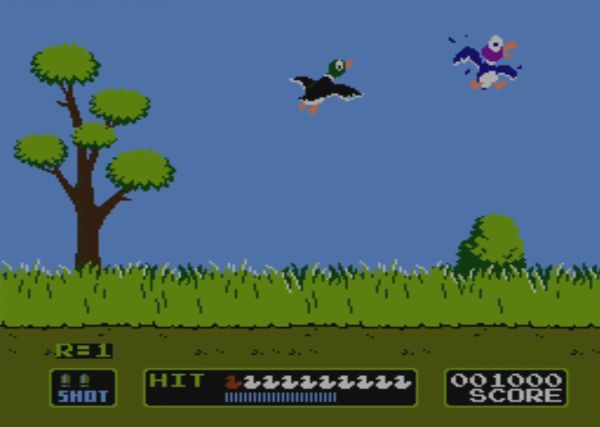
Figure 1. Shooting ducks in Duck Hunt (Nintendo, 1984).
This book concerns both kinds of game, focusing specifically on video games, broadly conceived, whilst addressing animals of many different kinds, including but not limited to those who are hunted. It is not a comprehensive history or overview of animals in games, though its subjects are drawn from across a broad period of game development. Nor is it an attempt to provide a taxonomy or typology of animals in games, though I will discuss a number of the distinct roles and parts that animals have been assigned. And it does not present sustained analyses of significant individual animals who have appeared in games, though mention will be made of some few remarkable or instructive characters.
Rather, the essays in this volume investigate some of the complex and often contradictory ways in which players of video games have been invited to encounter, understand, and engage animals. By what means, for instance, have animals own experiences and perspectives been represented as part of video-game play? How have games articulated or elided differences between individual animals, or between species or entire classes of animal? How have animals in games been presented or offered up as quarry, as obstacles or objects, and as resources? And, crucially, how have games imagined, addressed, or suppressed the differences and similarities that are supposed to pertain between animals and human beings. The pursuit of such questions about how games deal with animals prompts in turn a consideration of what those animals can tell us about games. How, for instance, do animals help us to understand the ways in which video games are to be played. What do they reveal about the goals that must be adopted, or the conditions that qualify as winning and losing, or the means by which we are permitted or encouraged or required to participate? What light can they shine, indeed, on the question of what counts as a distinct iteration of a game? And what do they have to say about the values and ideologies, the arguments and rhetorical strategies, that exert themselves through games. The essays ask, in short, what insights are to be gained when we reflect on the varied, telling ways in which animals and games have been brought together. But there is, in addition, a third sense of
Next page
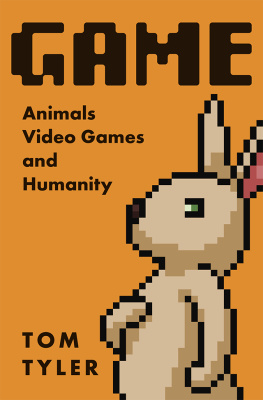



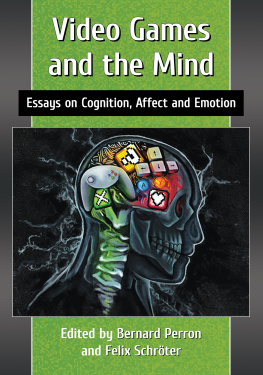
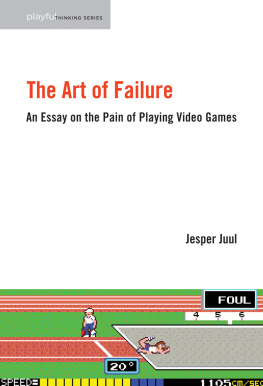

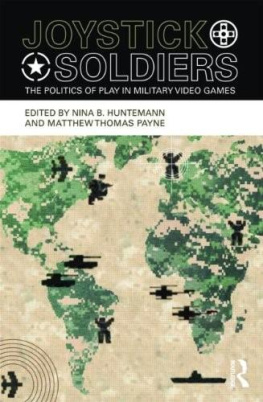
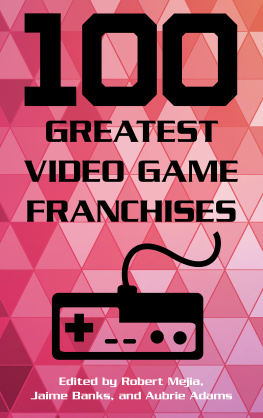
![Ethan Ham [Ethan Ham] - Tabletop Game Design for Video Game Designers](/uploads/posts/book/119417/thumbs/ethan-ham-ethan-ham-tabletop-game-design-for.jpg)
